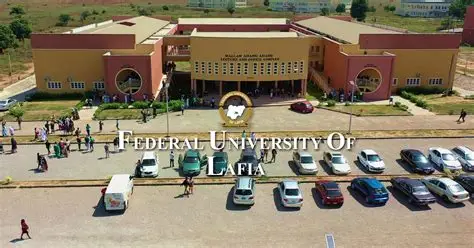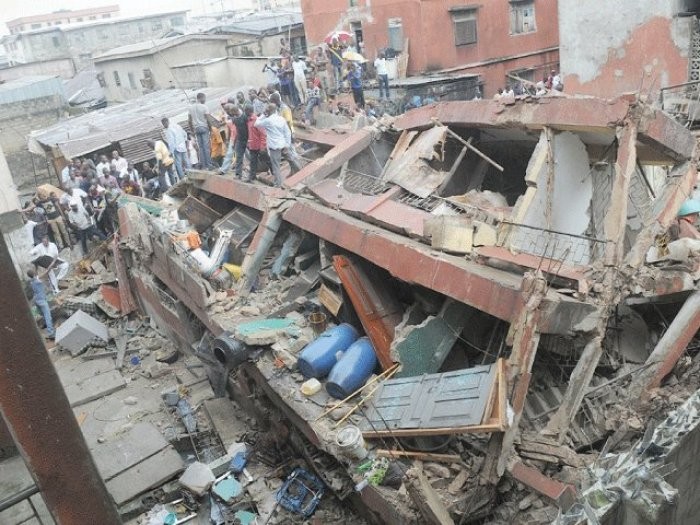
Given the media’s pivotal role in the society, a Non-Government Organisation (NGO), Coastal Cities at Risk (CCaR) Project is seeking effective communication and agenda for enhancing resilience to climate change in Lagos State.
In a workshop organized for practicing journalists in the state held at the National Broadcast Academy in Lagos, the group said that resilience to flood risk in Lagos is highly dependent on the provision of a functioning basic infrastructure and social services.
The group, also underscored the need for structural measures in enhancing the capacity of vulnerable communities .
Lagos Project Lead and climatologist at the University of Ibadan, Dr. Ibidun Adelekan, said Lagos was chosen among other coastal cities in the world that include Bangkok, Manila and Vancouver because of the grievous impact of climate change in the state.
According to her, Climate change and city growth have resulted in increase in the frequency and spatial extent of flooding in the city of Lagos.
Apart from the well-acknowledged social and economic impacts associated with flooding, she noted that there are also physical and mental health impacts on flood affected residents.
She said: “Cases of people being injured from falls and accidents during flood events as well as loss of lives are well reported”.
She stressed that about 25 deaths were recorded during the Lagos flood disaster of July 10, 2011, while at individual and household levels, the health effects of exposure to floods are evident as flood water, a mix of drainage, surface run off and sewage inundates communities and flows into many flood affected houses.
“Portable water shortages, due to pollution of water sources especially wells and damage to water pipes following flood events is a major underlying cause of disease.
“Because of the worsened environmental conditions that result from flood events, water borne diseases, hepatitis, skin and eye infections, respiratory infections, gastro-intestinal infections and malaria are endemic in flood –prone areas.
“ In slum communities households report recurrent visits to health centres because of ill-health and an increase in medical expenses as a major outcome of floods.
She noted that while much focus has been on the social and economic impacts of flooding, physical and mental health effects, which are preventable, also occur
The health consequences of repeated flooding, she said, can be far-reaching and difficult to cope with particularly among them urban poor.
Attention, she said, should be directed at addressing the burden of diseases and long term mental health impacts on flood-affected population as well as some consideration in the planning of formal responses.
“Immediate actions also need to be instituted to create community-oriented environmental pollution control”. She added.
She stressed that one of the grave environmental challenges, bedeviling metropolitan Lagos, she said is indiscriminate disposal of municipal solid waste (MSW).
She noted that although, a number of structural and non-structural measures have been put in place to ensure municipal solid waste free city, the struggle to disentangle metropolitan Lagos from the menace of disposing MSW in unregulated places remains elusive, owing to increase in waste generation cause by intractable population growth and subsequent poor collection by government agents.
With about 10,000 tonnes of solid waste generated daily at 0.7 kg per capital, Dr Adelekan called on urban managers in metropolitan Lagos to adopt effective and sustainable waste reduction strategies, introduce aggressive waste recycling modalities and intensify collection rate as part of effective management of flooding in the city.
In his remarks, Lagos State Commissioner For The Environment, Dr Babatunde Adejare noted the explosive population figure with over 200 drain channels because of the geographic location of the state.
According to him, the state has initiated a sustainable programme over the state to tackle the menace of flooding with high cost implication on the state, hence the advocacy on the dangers of dumping refuse in the drains, since blocked drains affect coastal cities.
The commissioner stressed that the state is determined to safe guard the people and property and have thus embarked on the reclamation of land in the bar beach through the Eko Atlantic City project.
Dr Adejare stressed that the state has so far planted over 6 million trees to mitigate the effect of climate change with a target of planting 10 million trees in 2020.
The tree planting exercise, which saw the planting of 600,000 trees in Lagos last week, he said, will produce oxygen to combat the carbon dioxide that deplete the Ozone layers.
He also stressed that the state will henceforth implement in full the development law of the Ministry of Physical planning since it is the easier way to mitigate the effect of change.
He therefore urged for attitudinal change among residents to mitigate the effects of climate change.
The commissioner stressed that the state will soon reform the waste management system by allowing public participation but lamented lack of adequate fund to solve the enormous environmental problems in the state,
He tasked participants to sensitize the public on environmental problems.
Earlier, the former head of department communication and language Arts, University of Ibadan, Dr Adeyinka Laninhun tasked the media to live up to its responsibilities by educating and informing the public both before flooding and after flooding.
Dr. Laninhun, who spoke on the role of the media in setting the agenda for building resilience to flood risk in Lagos tasked media practitioners on the need for audience analysis before embarking on their reports.
She also stressed the need for the media to investigate ands liaise with disaster management agencies as well as investigate challenges to adaption.
The public, she said needs information on how to recognize simple hydro metrological a geographical signs and how to act in early warnings.
According to her, there is need to frame climate change as a phenomenon that will have an impact in nearly every human system, including health, the economy and national security.
“Climate change is not just an environmental, it threatens the basic human need,” she added.
While noting the major problems of commercialization in the media, the communication expert said, there is need to give flooding and climate changes issues prominence through data, humanitarian, investigative and global journalism.
Earlier in his address, the director, national broadcast Academy, Ajibola Abiola, an engineer, noted the implication of the rising sea level for coastal cities like Lagos, which causes, he said were essentially human made.
According to him, the kind of human actions that precipitate the dangerous climate change including the dangerous rise in sea level, include the rate of migration to Lekki, Ajah as well as unimaginable level of excavation and infrastructural development going on right now in other coastal outlets.
He urged participants to enlighten the public on the implication of their actions and the need to take proactive steps in order to forestall any unpleasant calamitous situation.
The project, which focused on the low lying coastal started in 2011 but was first launched in December 2013.
The overall objective of the Coastal Cities at Risk is to develop the knowledge base and enhance the capacity of mega-cities to successfully adapt to and when necessary cope with risks posed by the effects of climate change, including sea level rise, in the context of urban growth and development.





